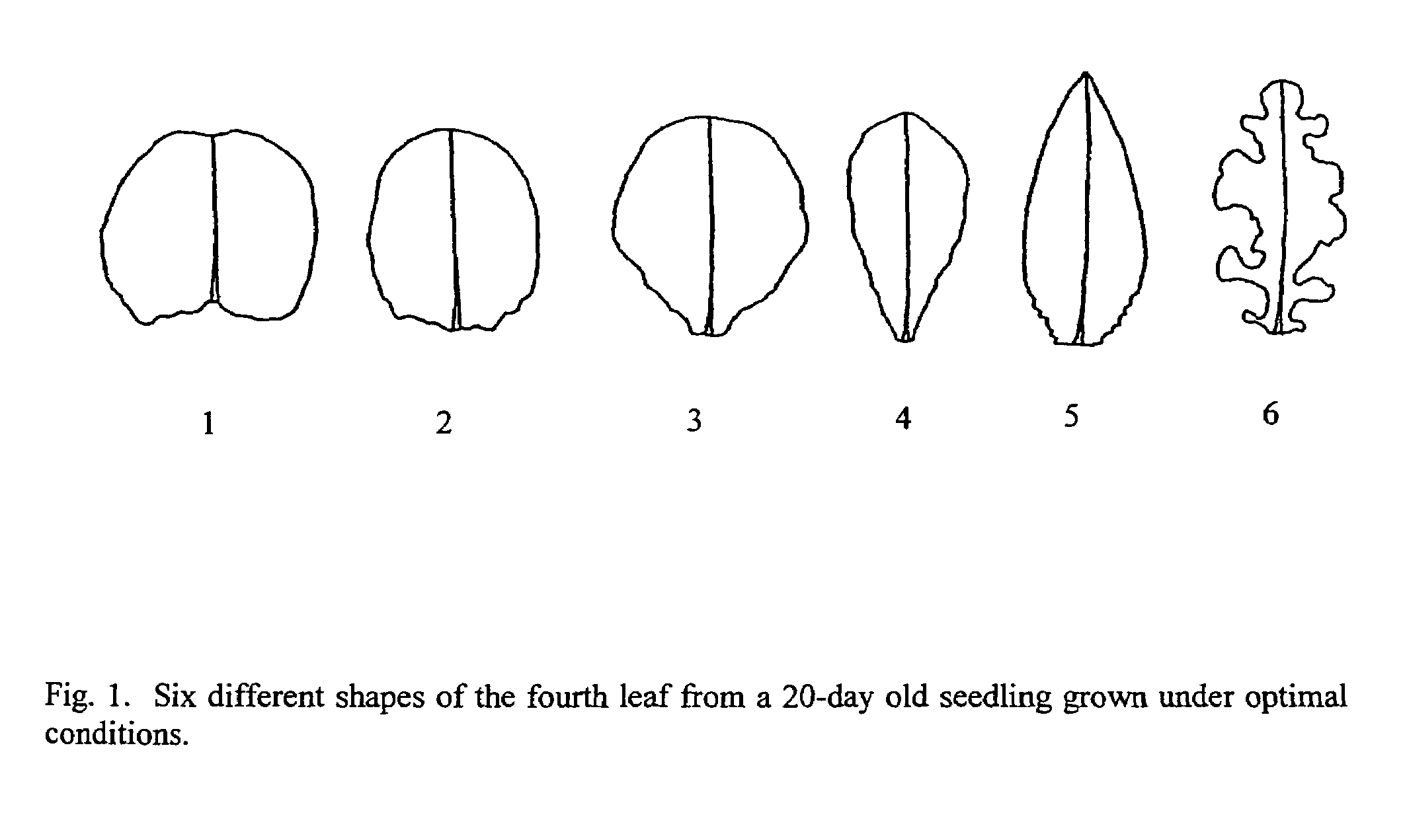Lettuce variety
a lettuce and new technology, applied in the field of new lettuce, can solve the problems of low temperature and high humidity of lettuce grown at relatively low temperature and high humidity, and millions of dollars of lettuce crop loss,
- Summary
- Abstract
- Description
- Claims
- Application Information
AI Technical Summary
Benefits of technology
Problems solved by technology
Method used
Image
Examples
example 1
Development and Characteristics of Lettuce Cultivar 41-52 RZ
[0044]The breeding history of lettuce cultivar 41-52 RZ started with a cross between the romaine lettuce “Candela” (Rijk Zwaan) and the iceberg lettuce “Fortunas” (Rijk Zwaan) for the purpose of introducing resistance against Nasonovia ribis-nigri (Nr-resistance) in the romaine type. An F1-plant from this cross was used as a father in a backcross with a plant of “Candela.” A resulting F1-plant was grown in Hendrik-Ido-Ambacht, the Netherlands, to produce an F2 seed. In 1998, the F2 seed was sown in a spring trial in Aramon, France. In May, 1998, an F2-plant was selected for being of the romaine type and being Nr-resistant. The F2-plant produced F3 seed, which was sown in a late summer trial in Aramon in 1998. In September, 1998, an F3-plant was selected for being of the romaine type and being Nr-resistant. This plant was used as a mother in a cross with a father plant of the romaine lettuce “Bacio” (Enza Zaden). The purpose...
PUM
| Property | Measurement | Unit |
|---|---|---|
| diameter | aaaaa | aaaaa |
| temperature | aaaaa | aaaaa |
| temperature | aaaaa | aaaaa |
Abstract
Description
Claims
Application Information
 Login to View More
Login to View More - R&D
- Intellectual Property
- Life Sciences
- Materials
- Tech Scout
- Unparalleled Data Quality
- Higher Quality Content
- 60% Fewer Hallucinations
Browse by: Latest US Patents, China's latest patents, Technical Efficacy Thesaurus, Application Domain, Technology Topic, Popular Technical Reports.
© 2025 PatSnap. All rights reserved.Legal|Privacy policy|Modern Slavery Act Transparency Statement|Sitemap|About US| Contact US: help@patsnap.com

